If I earned $1 for every time someone questioned my parenting philosophy, then I wouldn’t need Patreon. Our son Caspian was born into a life of full-time travel in December 2016, and now he is driving around the world. Almost every day, strangers question his quality of education, socialization opportunities, safety, and mental health.
While some questions are mere trolling, others come from a place of well-meaning curiosity. More importantly, some inquiries come from parents who are inspired by Caspian and considering a life of travel for their own children.
In this article, we’ll answer the following frequently asked questions. In doing so, we’ll define our overall parenting philosophy and philosophy of education for Caspian.
- How will Caspian learn what he needs to know while traveling full-time around the world?
- How will Caspian make friends and be properly socialized?
- Isn’t it dangerous to travel internationally with a child?
- How will you mitigate the negative affects of full-time travel on Caspian as he grows up?
How will Caspian learn what he needs to know while traveling full-time around the world?
In early October 2021, we left the United States for a 10- to 15-year journey around the world. We plan to drive to the tip of South America, ship our Jeep to Africa, travel through the continents of Africa, Europe, and Asia, and then conclude in Australia.
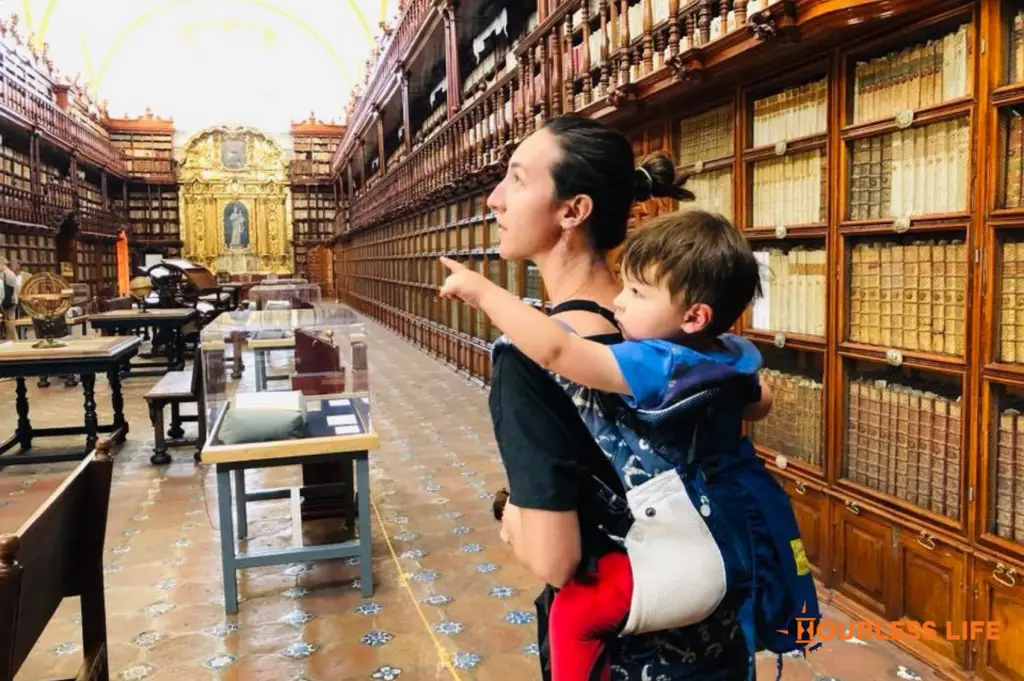
When people ask about Caspian’s education, I think they’re often looking for the name of a curriculum or online school. If we responded, “Caspian will be enrolled in Dr. Smart’s Accredited Online University for Children for 35 hours a week, with an hour a day devoted to the subjects of reading, writing, foreign language, mathematics, science, social science, and art,” the matter would be put to rest in the minds of most people.
“Oh good,” they’d say with a sigh of relief. “With an education like that, Caspian won’t be left behind, and he will return from driving around the world on-par with the rest of his peers.”
But here’s the real answer. We have no plans for online school or structured, “comprehensive” curriculum. My husband Eric and I will be Caspian’s teachers, following his interests and utilizing the changing environment around us.
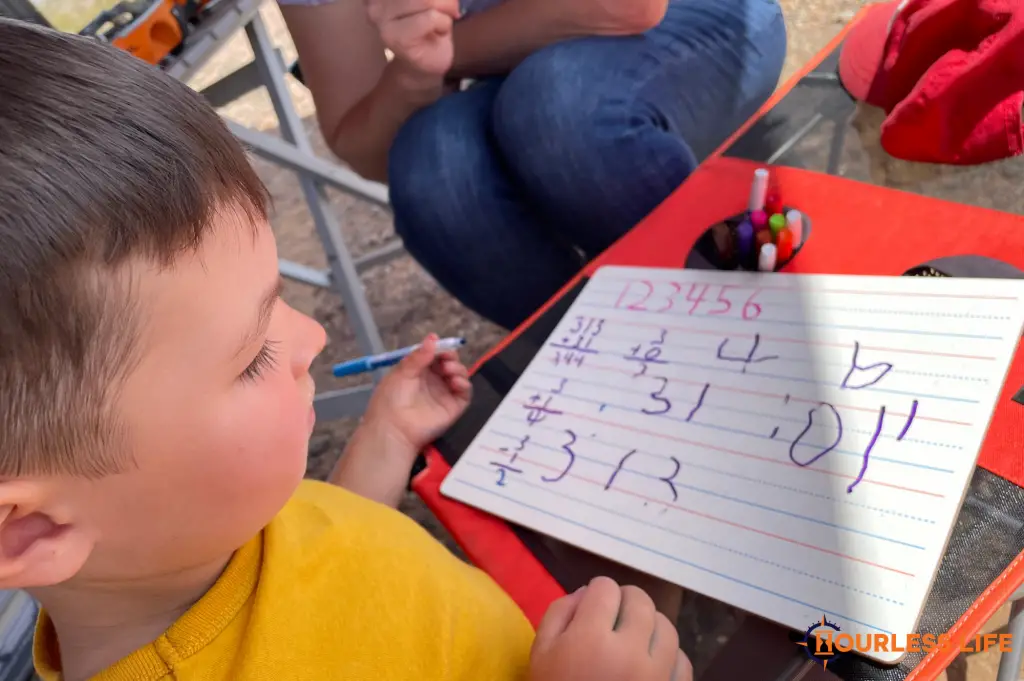
In addition to my experience of homeschooling through grade 12 before attending The University of Texas at Austin as a 4.0 student, I’ve spent the past two years defining what I believe about learning. My research led me to develop the following philosophy of education:
- If we teach Caspian to love learning and to learn how to learn, then there is nothing he can’t discover for himself.
- When a person is passionate about a topic, she will pour herself into the learning process, and it will be fulfilling and enjoyable.
- The more of the five senses that are employed to learn about a subject, the better that subject will be understood and the knowledge retained. Therefore, an education using sight, smell, hearing, taste, and touch as we travel to different parts of the world will etch a lasting impact.
- Every person we meet has something to teach our son. From their unique upbringing, cultural background, and life experience, he can encounter new ideas and gain knowledge.
- Traditional textbooks are poor teachers. In general, they provide mere soundbites based on the biases of their authors.
- Good literature accompanied by beautiful illustration is an excellent teaching tool. Caspian read 1,000 books before his fifth birthday, and he independently set a goal of reading another 1,000 books before he turns six.
- Travel changes people. As Scott Brady of Overland International said, “There are a million different ways to live. If I take a little bit of the good from each of those things, my life might actually change for the better.” Travel allows us to witness a million different ways of living and challenges our assumptions for good.
I realize and appreciate all this may be hard to wrap your head around. “But wait,” you may be thinking right now. “What about multiplication tables and the history of the American Revolution? How will Caspian learn these important things without a structured curriculum? Won’t there be gaps in his education? How will he be ready for university?”
If you have never witnessed a nontraditional education, then our parenting philosophy may seem foreign and ineffective. But the reality is there are many ways to learn multiplication tables and history organically, weaving them into daily life in a way that is memorable and enjoyable. As time goes on, we will share examples of what this looks like.
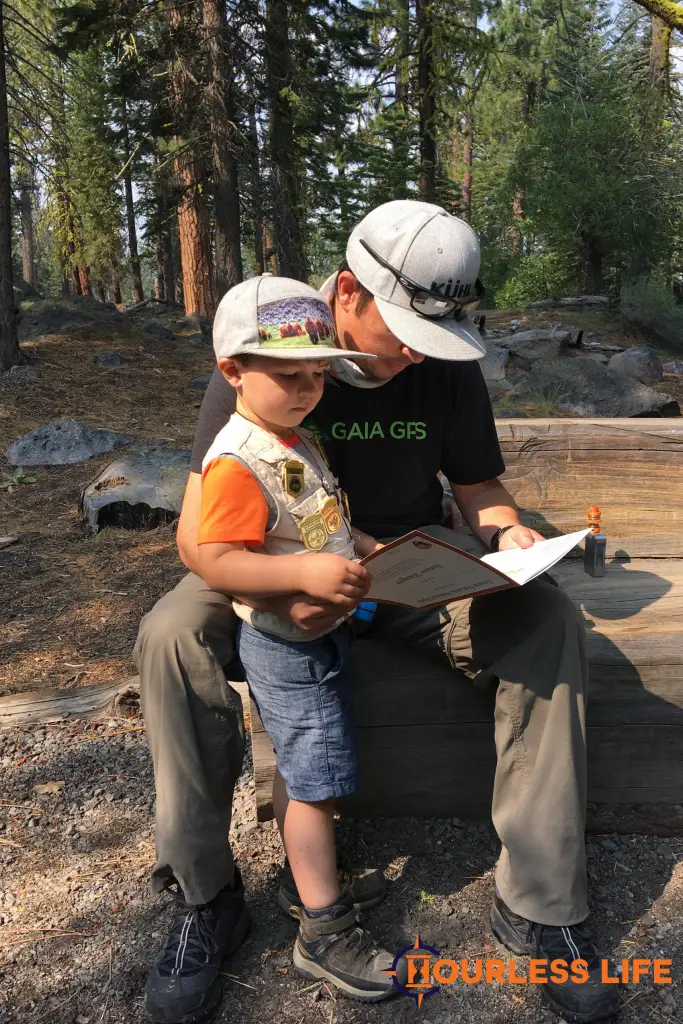
Honestly, school subjects are the easy part. There is much more that a person should learn during childhood and adolescence, the lack of which can impact the rest of their life.
Think about it: what do you struggle with most as an adult? Do you struggle with French verb conjugation or remembering the Pythagorean theorem, or do you struggle with self-esteem, balancing a budget, controlling your temper, figuring out what to do with your life?
I believe our traditional educational system is so off-course that many children complete high school ill-equipped for adulthood. I also believe many parents have ceded responsibility to schools, incorrectly assuming school can provide a comprehensive education. If his first four years of life are any indication, then Caspian will not suffer from these systemic shortcomings. We have opted out.
How will Caspian make friends and be properly socialized?
There’s no question: Caspian’s life on the road has been, and will continue to be, socially different from those who spend their childhood in one geographic location. He will not go through school with the same people or spend every weekend at his grandparents.
Depending on your own childhood, this may automatically be seen as a bad thing. But not everyone shares that opinion. If you were bullied through school, grew up in a small town where everyone knew everything about everyone, or were a natural introvert, then a life of full-time travel may hold a lot of appeal. Even Eric, who was one of the more popular kids in a Seattle high school of 5,000 people, only stays in touch with a small handful of friends from his youth.
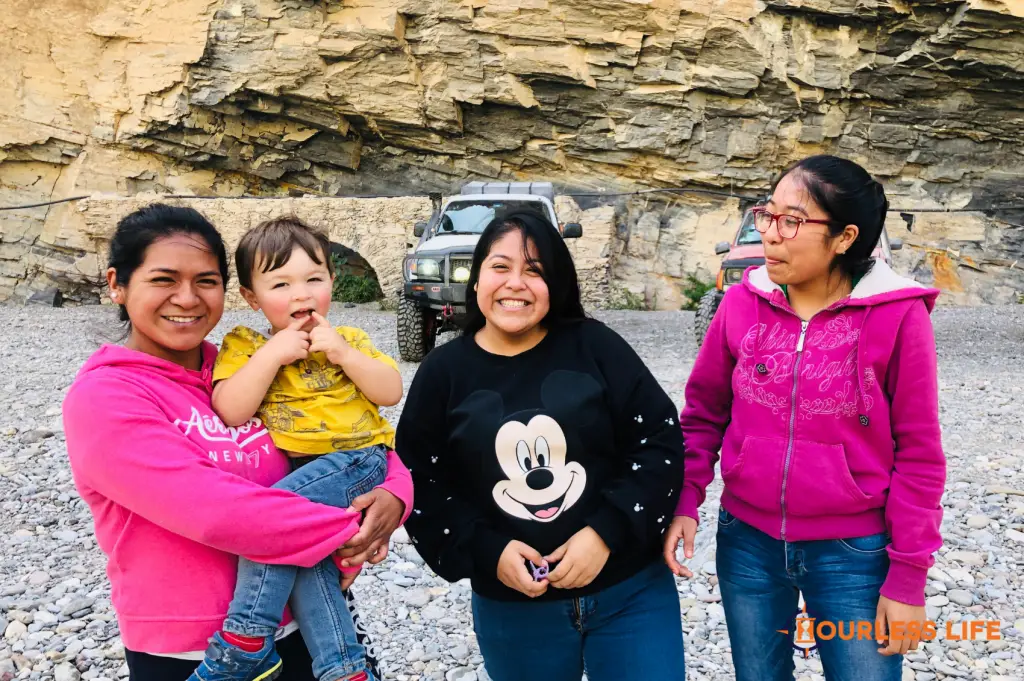
So what are the real goals, when it comes to socialization and friendship for children?
- To have the beautiful gift of lifelong friendship with someone they met in childhood. This is possible for Caspian, especially in an age when many children grow and maintain friendships over the Internet. He is already building friendships with people around the world, and he also has family and friends in the United States who he gets to see when we fly back to visit.
- To respect people who look different and believe differently. No one, the media included, will be able to tell Caspian what to think about the world. He will have seen it himself, and will be able to claim friendship with people from Mexico, to Zambia, to Mongolia.
- To relate to people of all ages. In my opinion, a disadvantage of traditional education is the amount of time a child spends with people his own age. Older kids look down on younger kids, and few kids can look an adult in the eye while holding a conversation. An advantage of any type of homeschooling (roadschooling and worldschooling included) is exposure to people of all ages, from babies to the elderly.
- To be comfortable in diverse social situations and make human connections. I smile at this goal because, as an introvert myself, I feel uncomfortable in new social situations and would rather observe than engage. Not so with five-year-old Caspian. Since he has been traveling full-time his whole life, he doesn’t know a stranger. Everyone is a friend he hasn’t met yet. Ask anyone who knows Caspian Theodore, and they will tell you he has no issues socializing or making friends. This is even true here in Mexico, where Caspian is still learning Spanish and isn’t able to communicate fully. He is learning to use hand motions, smile, and simply “be” with people, even when he can’t talk to them.
Isn’t it dangerous to travel internationally with a child?
I’ve thought long and hard about why international travel seems so scary to us as Americans. The media is definitely a major culprit. The nightly news is negative and sensational because that’s what gets ratings. You’ll hear about every tourist who gets hurt or kidnapped, but you’ll never hear about the American family that drove all the way to the tip of South America and had a wonderful experience (by the way, there are multiple families making this trip right now, ourselves included).
There’s also our geographic isolation, with English-speaking Canada to the north. Compared to continents like Europe, Africa, and Asia, where it’s common to learn multiple languages, visit other countries, and interact with people from different cultures, many Americans are unfamiliar with life outside our country.
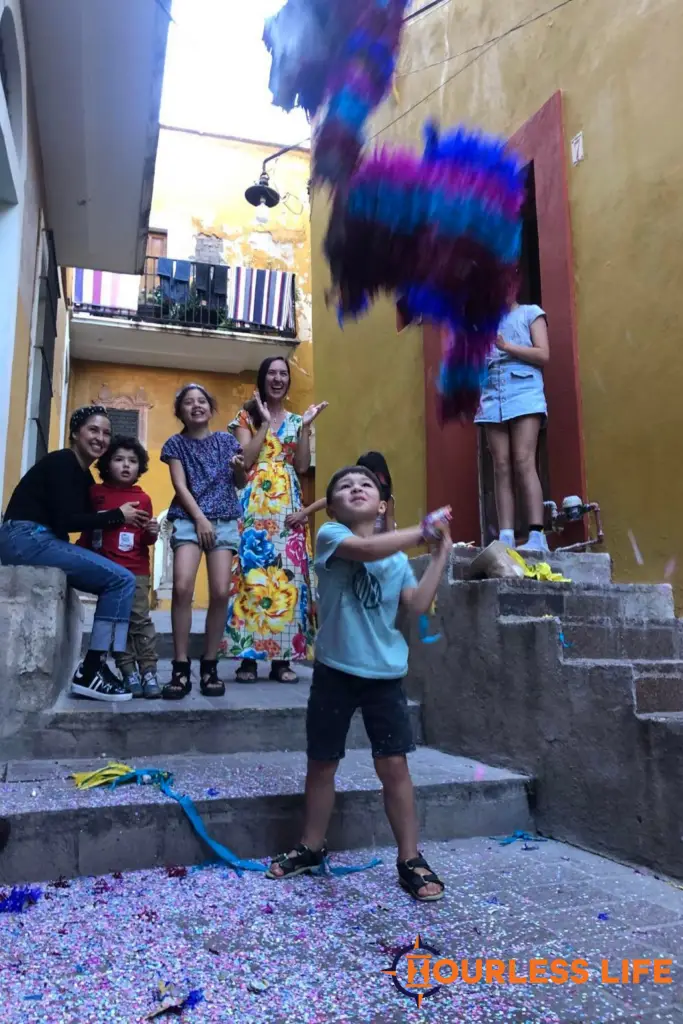
Unfamiliarity has a way of breeding fear. Even within our own country, the concept of the “other” (people who look and believe differently) is causing tremendous division. In many cases, we won’t engage with, let alone be friends with, people who are different. This is wrong, and this is the type of mindset that international travel can change for the better.
So is it dangerous to travel internationally with a child? It can be, yes. It can also be dangerous to take your children to grocery stores in Colorado, churches in Texas, or the Gilroy Garlic Festival in California–all of which have been sites of recent mass shootings. Why do we have a false sense of security here in the United States, while obsessing over danger in other parts of the world?
Just like we mitigate risk in our own country, there are basic ways to mitigate risk in foreign countries. By following best practices for overland travel, having situational awareness, and following our gut instincts, we have avoided problems. As of this writing, we have driven 2,000 miles of Mexico’s Baja Peninsula and approximately 3,000 miles through interior Mexico. Three trips in three years, the first with a toddler who had just turned two, with no threats to our safety.
How will you mitigate the negative affects of full-time travel on Caspian as he grows up?
I’m not sure how to tackle this question, but I have to. It came in an email from a stranger, verbatim, just the other day.
I guess I want to say, “Have you met Caspian?” Or maybe, if you haven’t had the privilege of meeting him in person, “Have you watched him in our videos?” The child just turned five this month and he is a force of nature. He is the most flexible and friendly person I know, with an emotional intelligence that puts most adults to shame. He is empathetic and compassionate, witty and a bit goofy. Caspian is special, and our lifestyle of full-time travel has a lot to do with it.
As Caspian grows, he will have more and more say in our lifestyle and travel. If he wants to settle down for his high school years, then that is definitely on the table. Four of the most important maturing years of his life are a drop in the bucket for Eric and me. But we don’t have to decide that right now. Only time will tell what his passions will be, or if he’ll ever want to stop traveling himself.
So what exactly are the negative effects of full-time travel? I have a front row seat and so far I’m only seeing incredible results for our beautiful son and adventure partner.
Face your fear
Too often, people use their kids as an excuse for not pursuing their dreams. Our children are incredibly adaptable and flexible. Especially when we expose them to activities early in life, they learn “this is what we do as a family.” We’re a family of hikers, readers, travelers, volunteers, cyclists–you name it.
Our children look to mom and dad for how they should react to challenges. They will mirror our sense of humor and composure on the days we get a flat tire or take a wrong turn. In the process, we equip them to handle all the times in life when they will take a wrong turn.
At the end of the day, I empathize with the questioners. When I discovered international overlanding in 2018, I wrote it off because I had a one-year-old. An adventure like that had to be for someone else, but it couldn’t be for me. It wasn’t until I learned about the Snaith Family’s four-year trip around the world with two daughters that I realized I had no excuse. It had been done before.
With the doubters, the people who judge my parenting philosophy and the “negative” impact of DRIVING AROUND THE WORLD, my patience wears thin. No child can have it all. Every parent fails in multiple respects. But we’re giving our young son a once-in-a-lifetime experience and teaching him that he can lasso the moon.
After all, the distance around the world is already a tenth of the way there.
-Brittany
Additional resources
- Stimulating Your Child’s Growth Through Travel
- Overlanding 101: Overlanding With Kids (video)
- Full-time Overlanding Families Traveling Internationally
- 10 Principles to Enrich Overlanding With a Toddler
- Making Room for Kids to Learn During Travel
- Happiness Is Here blog (major influence on my philosophy of education)

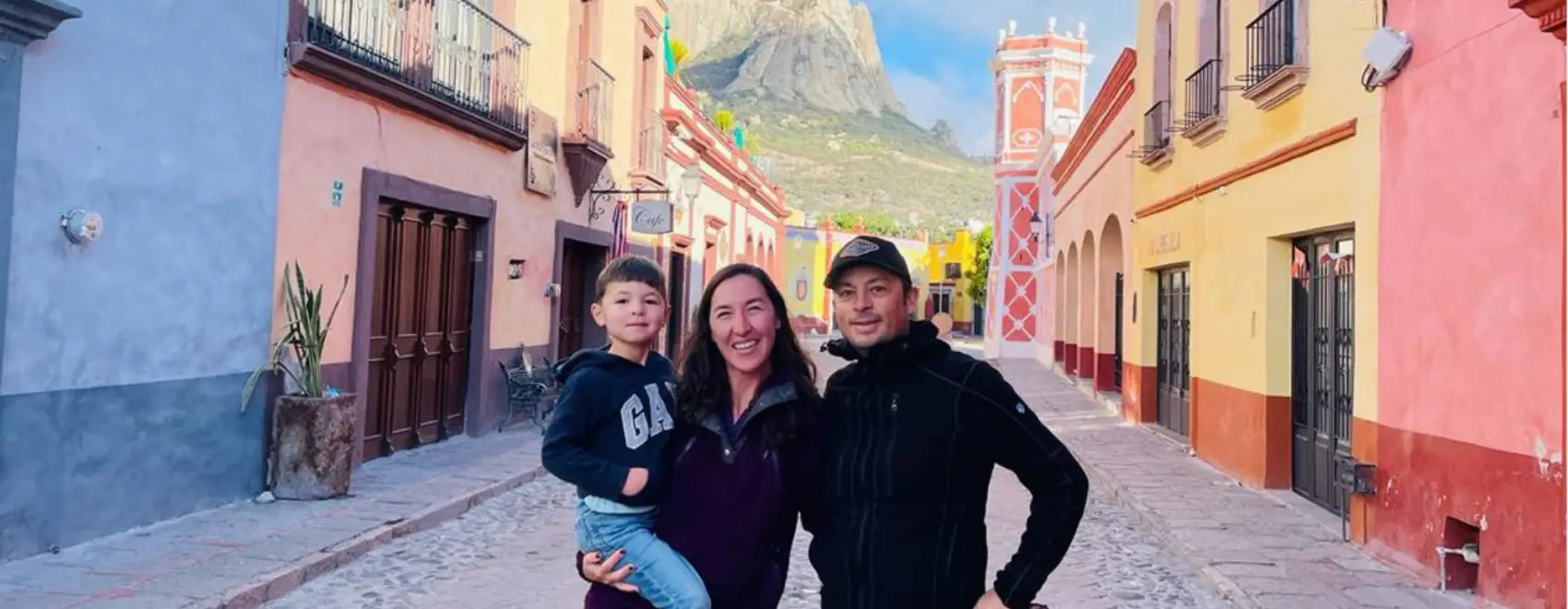


Just read you while post and can’t agree more! You guys are fantastic and Caspian is such a a great guy, with so many adventures and growth ahead of him. Looking forward to following you online (and maybe in person)! Erik
Really happy our paths crossed. We also hope to see more of you all throughout Mexico, and hopefully points farther south!
Our four children were homeschooled (classical curriculum) grades 1-12 with our youngest opting out for public high school (three years). She was the youngest recipient of the CPA in Texas a few years ago.
What this experience taught me is that the highest “product” of any educational program is the autodidact or lifelong student in charge of their own learning and development. Reading your philosophy of education this clearly is your goal for Caspian. Exceptional.
Thank you, JD–for the encouraging example and the good coffee. If I didn’t have my younger brothers’ and my homeschooling background to look back on, I don’t know if I’d have the courage to undertake this style of education. But with that experience, I have the deepest confidence we are on the right road and I feel very blessed to be able to provide Caspian this life.
Bravo! Caspian is blessed to have an amazing life. I have no doubt whatsoever his education will be far superior to any child who grows up following the standard curriculum! You are both amazing parents and Caspian’s “education” already far exceeds the norm for a 5-year-old! Once again the only thing I have to say is BRAVO!!
Thank you, Brandy! We appreciate your encouragement. Life takes its turns, and we are open to changing course as Caspian gets older. But for now, he is definitely benefitting from this wonderful life of ours.
The comment by Kevin was actually made by me Brandy Andrews 😂
(Susan here) As a mom who homeschooled her son through 4th grade, I’m cheering you on all the way! Your comments could have been my own; this lifestyle and what it will teach Caspian is simply the greatest gift you could possibly give him. And he’s doing just fine.
If doubt ever creeps in (as it sometimes did for me), you need look no further than this bright little human being and the way he takes in new experiences. It shows in your videos, so it must be even grander in person.
Susan, thank you so much! I love when people share from their own experience. And you’re exactly right: the doubt does creep in, and then I just have to look around to know we are on the right path!
In line, for sure. My little guy is now a big guy and years of outdoor exploration has influenced his worldview. Though I am sad he is talking about his own adventure now. I am glad you finally wrote! Thank you for elaborating about the same discussion we had back in October. I am enjoying your videos and my son is as well.
We appreciate you joining our adventure with your virtual ticket! :) My best to your son as he embarks on adventures of his own choosing. That is what we prepare them for, right?
Great job addressing the concerns about Caspian. We’re retired now, but my wife was a kindergarten teacher, and I was a high school Spanish teacher. We started traveling to other countries with our son when he was two. He had visited over 40 countries by the time he was twenty. He is now 34, and out of the blue the other day he thanked us for all of his international experiences while growing up. He said it taught him to be empathetic, and he better understands and appreciates how, and why people think differently from different cultures. I think Caspian will better understand the world and it’s peoples better than 99 percent of Americans today. Keep traveling, and keep us up to date on your adventures. Cheers.
Thank you for this comment, Andrew! How gratifying it must have been to hear that from your son.
Kudos to you both for parenting Caspian with intent. I have no doubt that he will develop into a happy, well-rounded, self-sufficient human. I wish more parents took on this job with as much thought as you two. Thanks for taking us along on your adventure.
Thanks so much, Jennifer. I just started a new book called “The New Global Student,” about a Portland family that moved their four high school/college daughters abroad with the most amazing results. If it ends up being as good as it looks, then I’ll add it to the Resources section at the bottom of my article. There are so many different ways to live, and I think any perspective shift we can give our children is valuable.
I don’t recall how I came across you and your family but I follow your journey on Instagram. I’m so deeply inspired by this blog post. Although I’m not in a position to provide my soon to be 4 year old son this exact experience, I 100% agree with your philosophy. Thank you for sharing these moments and perspectives with us. I’ll be subscribing to your YouTube channel as well. Have fun!
Hey Briana, thanks for taking the time to read and comment. It took us a LONG time to build to this moment of launching our drive around the world. A decade, in fact! And that’s not counting my husband’s 20 years of military service before that. If you’re interested in the story of our “Long Game,” you can watch it here: https://www.youtube.com/watch?v=ooauTIQQNMM. My best to you as you pursue your big dreams for yourself and your son, whatever they are!